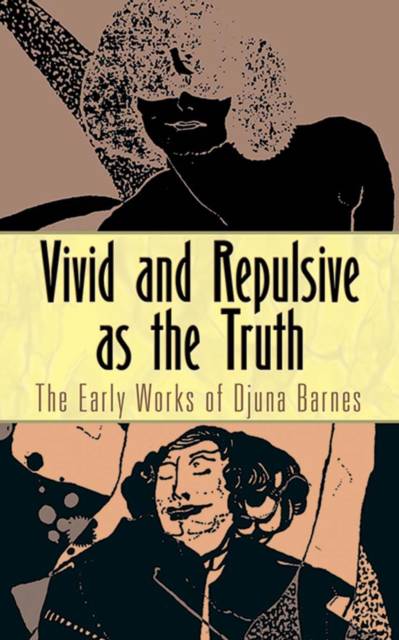
- Afhalen na 1 uur in een winkel met voorraad
- Gratis thuislevering in België vanaf € 30
- Ruim aanbod met 7 miljoen producten
- Afhalen na 1 uur in een winkel met voorraad
- Gratis thuislevering in België vanaf € 30
- Ruim aanbod met 7 miljoen producten
Zoeken
Omschrijving
The self-described "most famous unknown author in the world," Djuna Barnes (1892 - 1982) is increasingly regarded as an important voice of feminism, modernism, and lesbian culture. Best remembered for her 1936 novel Nightwood, Barnes began her career by writing poetry, short stories, and articles for avant-garde literary journals as well as popular magazines. She took the grotesque nature of reality as her recurrent theme, a pessimistic world view frequently brightened by her sparkling wit.
A longtime resident of Greenwich Village, Barnes drew inspiration from the bustling streets of Lower Manhattan, and this eclectic compilation of her early journalism, fiction, and poetry recaptures the vitality of her bohemian literary scene. The collection opens with articles ranging from an account of an evening at the Arcadia, a "modern dance hall," to a firsthand report of the force-feeding endured by suffragettes in 1914. In addition to profiles of a postman, vaudeville performer, and other local personalities, Barnes interviews Lillian Russell and Alfred Stieglitz and describes an encounter with James Joyce. A dozen short stories follow, and the book concludes with a selection of compelling and sensual poetry, including verse from The Book of Repulsive Women. A selection of the author's original illustrations is included.
A longtime resident of Greenwich Village, Barnes drew inspiration from the bustling streets of Lower Manhattan, and this eclectic compilation of her early journalism, fiction, and poetry recaptures the vitality of her bohemian literary scene. The collection opens with articles ranging from an account of an evening at the Arcadia, a "modern dance hall," to a firsthand report of the force-feeding endured by suffragettes in 1914. In addition to profiles of a postman, vaudeville performer, and other local personalities, Barnes interviews Lillian Russell and Alfred Stieglitz and describes an encounter with James Joyce. A dozen short stories follow, and the book concludes with a selection of compelling and sensual poetry, including verse from The Book of Repulsive Women. A selection of the author's original illustrations is included.
Specificaties
Betrokkenen
- Auteur(s):
- Uitgeverij:
Inhoud
- Aantal bladzijden:
- 272
- Taal:
- Engels
- Reeks:
Eigenschappen
- Productcode (EAN):
- 9780486805597
- Verschijningsdatum:
- 17/08/2016
- Uitvoering:
- Paperback
- Formaat:
- Trade paperback (VS)
- Afmetingen:
- 127 mm x 201 mm
- Gewicht:
- 294 g

Alleen bij Standaard Boekhandel
+ 23 punten op je klantenkaart van Standaard Boekhandel
Beoordelingen
We publiceren alleen reviews die voldoen aan de voorwaarden voor reviews. Bekijk onze voorwaarden voor reviews.











